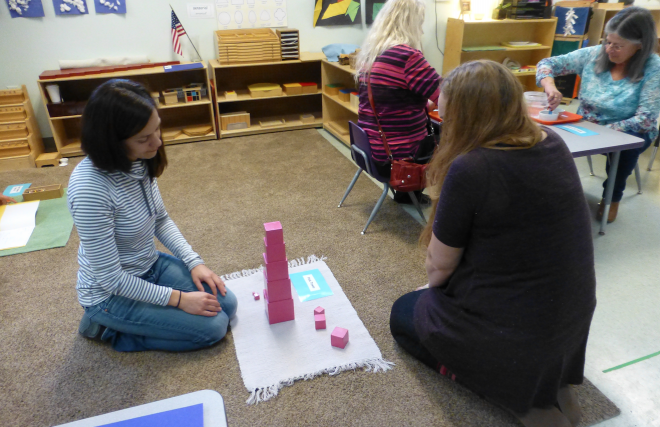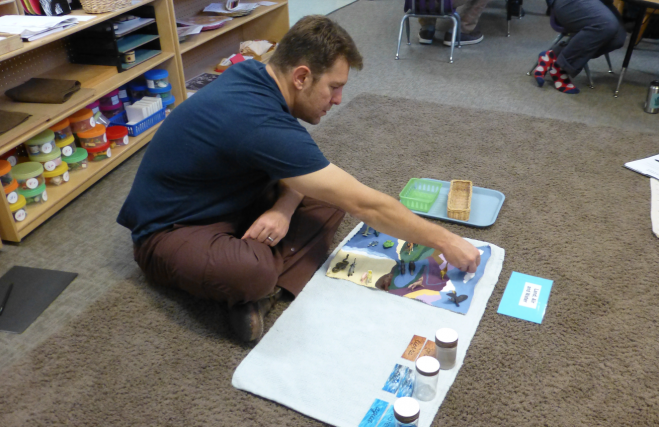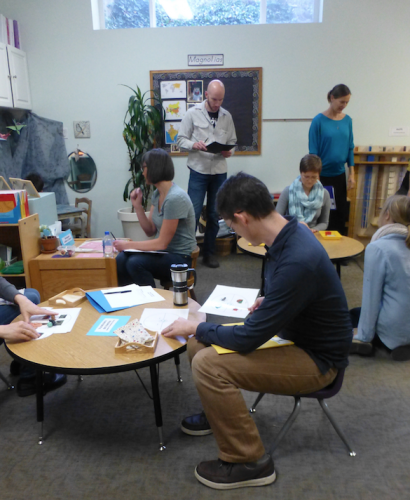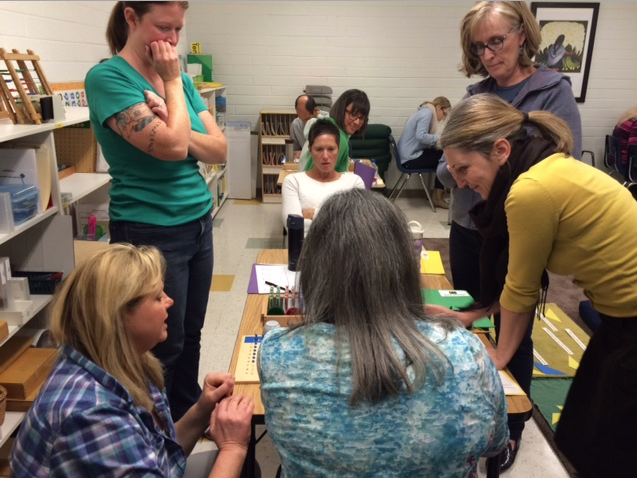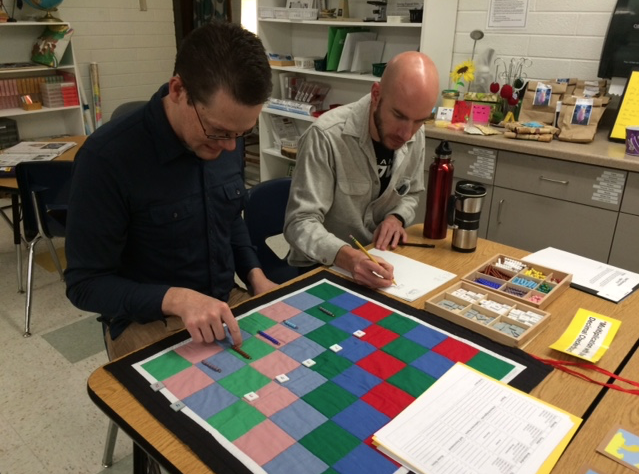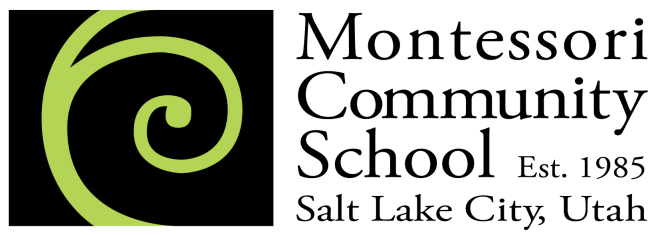
Early Childhood Specialties
Dance
In Dance Class, Early Childhood students are introduced to the main elements of dance: time, space, and energy, so that they can decipher and make choices in their movement. The students learn how to alter speeds, change levels, utilize space, play with quality, move with their whole bodies/being, mirror positive/negative space, as well as shaping and weaving.
Music
In Music Specialty classes, Early Childhood students are introduced to music and rhythm theory as well as vocal skills. They learn to sing and play instruments and to create, respond to, and understand music. In this class students are exposed to many different music styles as well as music from many cultures.
Outdoor Classroom
Early Childhood students participate each week in the Outdoor Classroom with our specialty teacher where they seasonally explore the plants, soil, invertebrates, birds, and weather through hands on activities. The students have many opportunities to practice and master essential developmental skills such as balance, control, independence, focus, and coordination through digging, building with logs, sticks and rocks, and interacting with nature in this class. The purpose of the Early Childhood Outdoor Program is to help students gain an understanding and love for the natural world around them.
Kindergarten Art Studio
The Third Year Early Childhood (Kindergarten) students attend Art Studio at scheduled times throughout the week. First and Second Year Early Childhood students follow an art curriculum in their classrooms. Early Childhood students focus on the technical fundamentals of color, shape, perspective, and shading. All of the students work with many different media, such as paint, pastels, pencil, collage, textiles, etc.
Kindergarten Winter Sports
Third Year Early Childhood (Kindergarten) students are invited to participate in skiing lessons at a local resort during school hours. This event provides students with an opportunity to develop their skiing or snowboarding skills and have outdoor fun in the “greatest snow on earth”. The Winter Sports Program takes place once a week and runs for 5 weeks during the second semester of the academic year.
Lower Elementary Specialties
Movement – Dance & Physical Education/Fitness
The Lower Elementary Movement curriculum includes both dance and physical education units. Students work on dance elements, such as shape, level, direction, size, focus, attack, weight, strength, pathway, locomotor skills, and flow with a specialty teacher in the dance studio. They also learn how to express themselves through dance, incorporate their own style, and how to integrate timing and choreography. The physical education units include learning about and playing a variety of team-oriented physical games, with an emphasis on endurance, coordination, flexibility, strength, agility, and sportsmanship as they work on general fitness.
Outdoor Classroom
Lower Elementary students participate weekly in the Outdoor Classroom with our outdoor specialty teacher where they explore and interact with the garden area throughout the changing seasons and learn about plant identification, functions, and uses, as well as earth history, animal adaptations, and paleo cultures. The purpose of the Lower Elementary Outdoor Program is to help students gain an understanding and love for the natural world around them while engaging in problem solving and creative application.
Art
In the Art Studio, Lower Elementary students practice the technical elements of art, such as line, shape, color, value, form, texture, and space, as well as principles of design, including balance, contrast, emphasis, movement, pattern, rhythm, and unity.
Winter Sports
Lower Elementary students participate in a Winter Sports program each winter. The Winter Sports Program runs for five weeks during the second semester of the academic year. This event provides students with an opportunity to develop their skiing skills and have outdoor fun in the “greatest snow on earth”. This annual event also provides opportunities for the students to stretch and develop their social and emotional skills. Elementary students attend ski or snowboard lessons once a week at a local resort during school hours for the five-week span.
Music
Lower Elementary students attend Music Specialty classes with a specialty teacher, where they learn music and rhythm theory as well as vocal skills. The students are exposed to many different music styles as well as music from many other cultures. The students learn to sing and play instruments with a varied repertoire of music. They improvise melodies, variations, and accompaniments. They also learn to analyze, describe, compose, arrange, read and notate music, and to understand music in relation to history and culture.
Spanish
An instructor for the Spanish language spends approximately eight (8) hours a week in each Lower Elementary classroom. The instructor incorporates Spanish into the students’ daily routine by providing lessons in vocabulary, grammar and many practical life experiences.
Upper Elementary Specialties
Movement – Dance & Physical Education/Fitness
The Upper Elementary movement curriculum includes both dance and physical education units with a specialty teacher. Advanced dance elements such as shape, level, direction, size, focus, attack, weight, strength, pathway, locomotor skills, and flow are introduced and taught to the students. They also learn how to express themselves through dance, incorporate their own style, and how to integrate timing and choreography. The physical education curriculum includes learning about and playing a variety of team-oriented physical games, with an emphasis on endurance, coordination, flexibility, strength, agility, and sportsmanship as they work on general fitness.
Music
Upper Elementary students receive formal instruction in music from a specialty teacher. Their curriculum includes music and rhythm theory as well as vocal skills. Using a variety of instruments, the students learn to keep a steady beat, play rhythm rounds with non-pitched instruments, and read music on the staff. They improvise melodies, variations, and accompaniments. They also learn to analyze, describe, compose, arrange, read and notate music, and to understand music in relation to history and culture.
Great Outdoors (GO)
The Great Outdoors (GO) program with our specialty teachers facilitates meaningful interaction with the environment through a three-year rotating cycle involving watershed, Utah native plants, as well as ecosystems and relationships in nature. Students explore habitats through hiking, lessons, activities, projects, observation, note taking, sketching, and researching. The purpose of these expeditions is to give the students a direct, personal connection with their natural world and, through that connection, a better understanding of the world around them as well as of themselves.
Art
In the Art Studio, an art specialist provides the students with instruction and knowledge to refine basic art techniques such as pattern, design, texture, shape and line, and learn more advanced techniques such as perspective, medium, shading, dimension, transparency, overlapping, and printmaking. Art supplies are available in the classroom for students to select as part of their week’s work. In addition, each month, the students study the life and work of a famous artist.
Winter Sports
Upper Elementary students participate in a Winter Sports program each winter. The Winter Sports Program runs for five weeks during the second semester of the academic year. This event provides students with an opportunity to develop their skiing or snowboarding skills and have outdoor fun in the “greatest snow on earth”. This annual event also provides opportunities for the students to stretch and develop their social and emotional skills. Elementary students attend ski or snowboard lessons once a week at a local resort during school hours for the five-week span.
Community Theater
Our Upper Elementary students participate in theater workshops each fall, culminating in a Community Theater production. The purpose is not to produce a Broadway-worthy production, but to give students the opportunity to take part in all aspects of a play. Younger students learn how to memorize lines, follow acting cues, design props, and face the audience. Older students work on projecting their voices, expressing themselves through vocal tone, facial expression, and movement. They contribute to the script, direct the scenes, learn to give and receive constructive criticism, and cooperate with each other to produce a successful play. They also work on costume and set design and the creation of sound effects.
Spanish
The Upper Elementary Spanish Program provides instruction under two main standards: Spanish language lessons and Rosetta Stone, an interactive computer program. Each week students have the opportunity to receive lessons from an instructor that furthers their understanding of the grammar of the language and supports their advancement through Rosetta Stone to practice vocabulary, writing and speaking.
Introduction to GO
(Great Outdoors Expeditions Program)
In the Great Outdoors Expeditions Program, commonly known as G.O., the Upper Elementary students fulfill the goals of exploring our environment, learning from our environment, celebrating our environment, and protecting our environment through many ways. The students are responsible for participating in all lessons and activities within our outings as we visit the desert, riparian, urban, wetland, and montane ecosystems of our magnificent Salt Lake region. We also form mentorships with education centers and organizations such as the Red Butte Gardens, Swaner Eco-center, and others. In addition to participation, students are expected to be responsible for their preparedness, hiking skills development, safety, and trail etiquette. To bring mentorship opportunities back to our Montessori community, the Upper Elementary students will be working with the Third Year Lower Elementary students once in the Fall and once in the Spring.
Students can be properly prepared for class if they know where we are going! Checking the monthly calendar will let you know each week’s destination and then they can dress appropriately. When chilly weather hits, even if we are visiting the desert, elevations can vary as well as temperatures, even if it is not snowing. We will be posting clothing suggestions monthly, such as wool socks, thermal underwear, snow pants, water resistant gloves and boots. It is also suggested that the students learn to dress in layers. They can always “peel and pack”, but it is much more difficult to warm up once you get too cold!
Regardless of the destination, students will always need to come to class on time with the following supplies:
- Appropriate clothing and footwear for the weather and expedition (sturdy hiking shoes are recommended)
- GO backpack with a sack lunch and water bottle (backpacks should be lightweight, durable, waterproof, and large enough to carry all necessary items)
- Students must also always have their GO journals (please provide your child with a blank paged notebook, approximately 8 ¾ x 11 ¼ for this purpose)
Students rely upon their GO journals (which we keep at school) for relevant notes, sketches, assignments, and projects; therefore, the GO journal is an essential part of class. Parents, if you ever see a GO journal at home or in a backpack, please encourage your student to promptly return it to school!
In the fall we focus on getting to as many different ecosystems and higher elevations as we can before the snow hits. In the winter we focus on our theme studies including research, writing, and art, which lead into the preparation of our annual Nature Card sale. Our card sale is in the Spring and becomes our contribution towards our over-night adventure at the end of the school year. We will also continue to visit the ecosystems throughout each season.
Considering that GO only takes place every other Friday (alternating between the two student groups) and many of our outings and agendas cannot be replicated or repeated, it is essential that students have a strong attendance record. Your support is welcomed and appreciated in advance!




